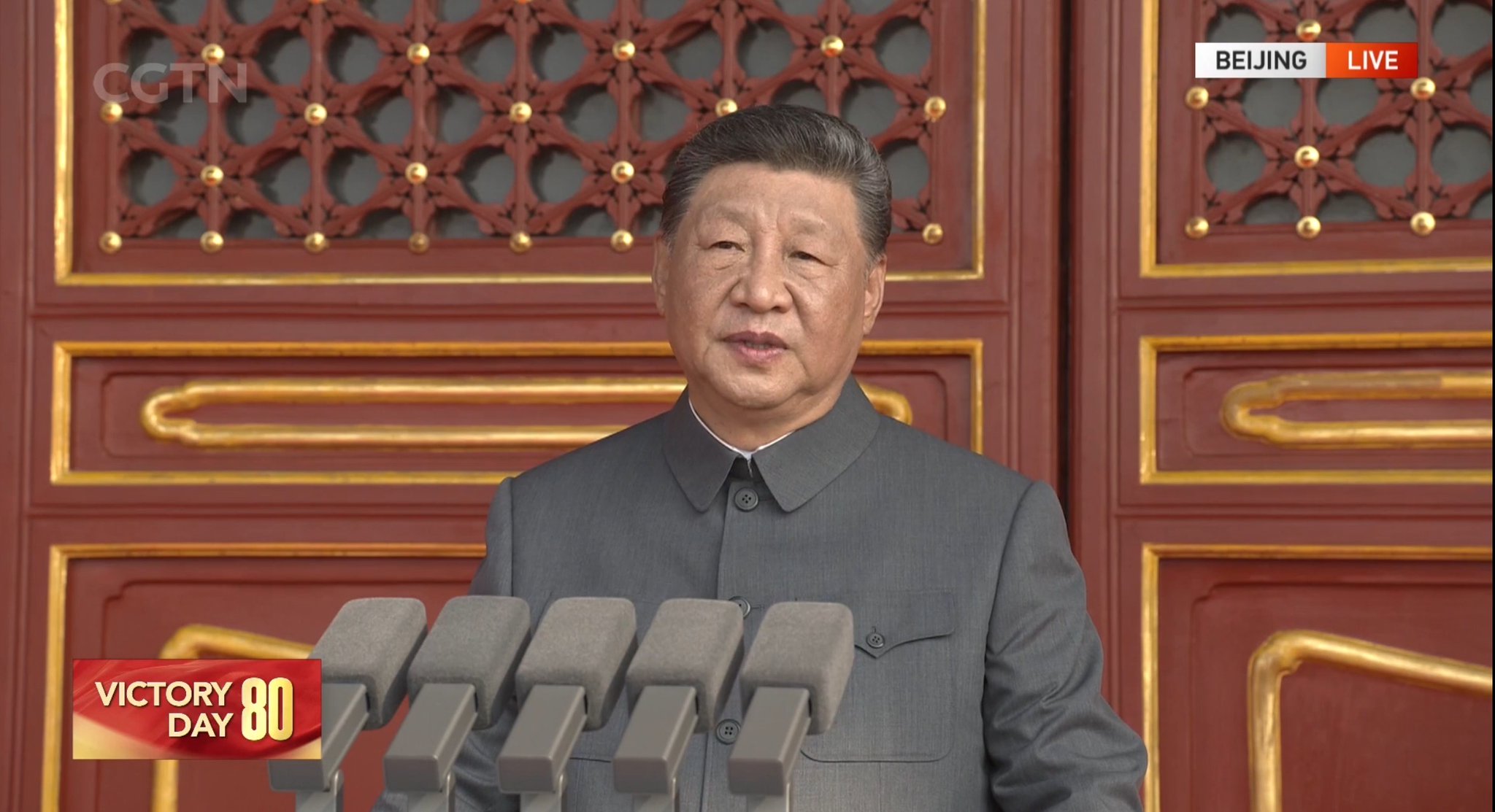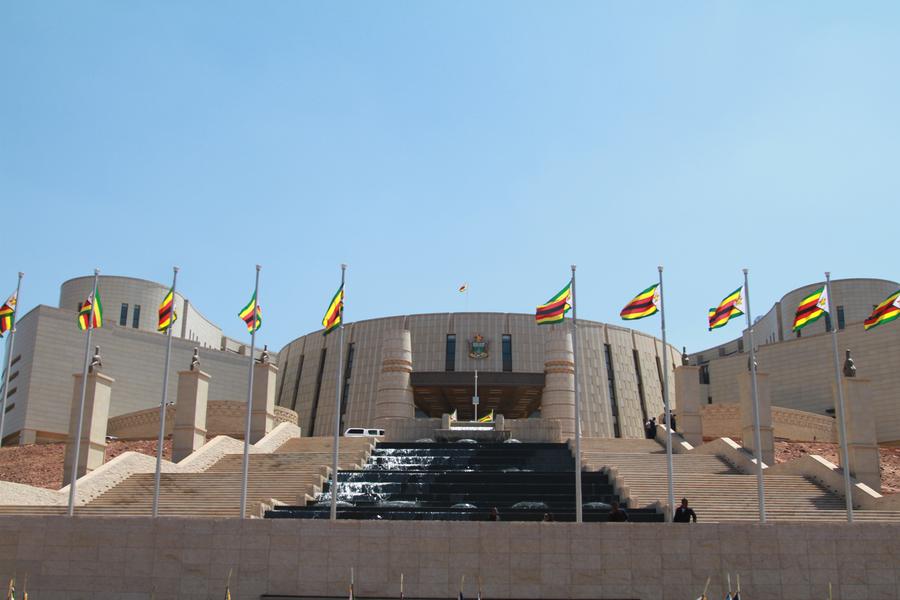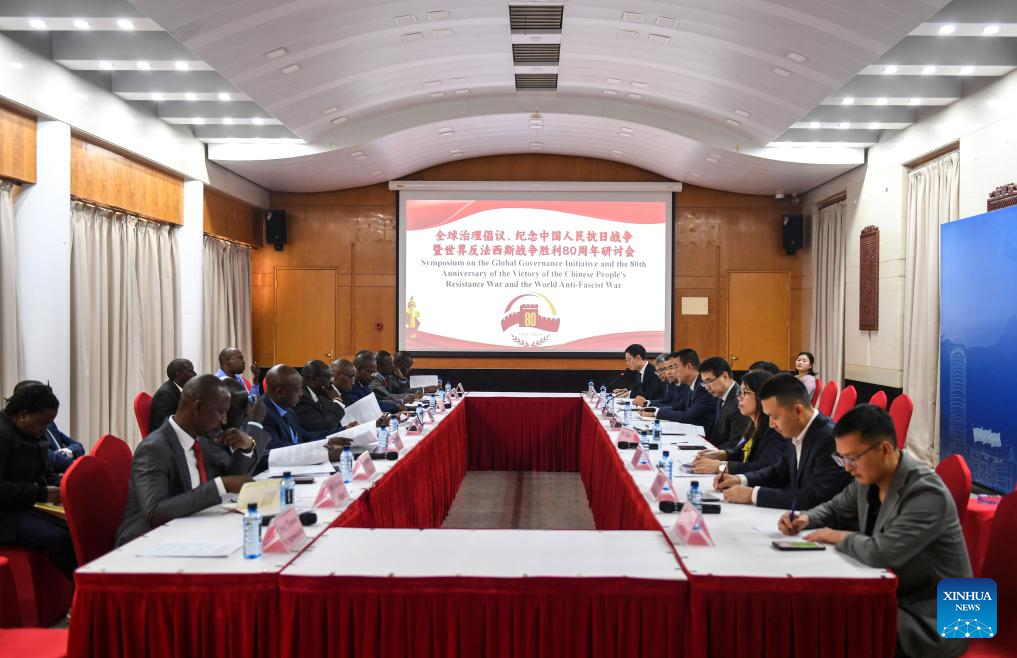By Gerald Mbanda
On September 3, I was glued on the television screen watching the victory Day parade. The matching of the soldiers was spectacular, their dressing impeccably smart, and their strides were equal and the height of the soldiers they all looked like twins of the same height. It was a mass parade of the century never seen before.
I looked at the face of President Xi Jinping and tried to read what was on his mind. He did not have the usual smile of a kind hearted people he is. Rather, I saw his mind going through time and space, with an expression of remembering the sad past, the soldiers on parade marching past, gave him confidence that the bitter past will remain in history, and never again will it happen again.
I read from his face as he inspected the troops that the troops gave him confidence of the present, and the rumble of heavy artillery across Tiananmen Square, evoked confidence of having built a modern army out of a nation that had emerged from ruin and humiliation of foreign invasions, and he calmly his face beamed with satisfaction of the right strategy and vision to achieve national rejuvenation.
As the massive silhouettes of the soldiers, heavy artillery and sophiscated types of missiles passed beneath the red banners and the towering portrait of Mao Zedong, Xi’s thoughts flashed into the past, tracing the long, bloodstained road that had brought China to this moment. Xi remembered the resilience, heroism and resolve of the Chinese people to defend and build a strong and beautiful China.
“Seventy years since victory over fascism,” he reminded himself, “and over Japanese aggression. We were once fractured, poor, mocked by the world. They called us the sick man of Asia. Today, we show them we are united, proud, and strong.”
The Victory Day parade was no empty ritual. To Xi, it was a living narrative—China’s suffering, resilience, and resurgence etched into steel and smoke. He thought of his father, Xi Zhongxun, a revolutionary, who kept loyalty to the Party until the end. He connected with the ordinary people, a legacy he left to his son. He imagined what his father might have said if he had lived to see this day. “We kept the struggle alive, and now the world must watch.”
In the skies over Tiananmen Square, fighter jets roared in perfect formation. Below, the new DF-41 intercontinental ballistic missiles followed—a show of strength, of deterrence, of presence. They were not instruments of war, Xi told himself, but instruments of peace—peace earned through strength.
The memory of China’s bitter past is written in blood and cannot be erased. The Nanjing Massacre that killed more than 300,000 innocent people, the raping of women by invading Japanese forces. The forced treaties. The burning of the Old Summer Palace. For Xi, these were not just historical events—they were psychic wounds, shared by a people and leveraged by a Party that had sworn to ensure it would never happen again. This was the unbroken thread that tied 19th-century humiliation to 21st-century resolve.
But this parade, Xi thought, was not just for remembrance. It was also a message—calculated and unmistakable. A signal to the West, particularly the United States, that China would not bend, not fade, not be contained. The trade wars, the encirclement strategies in the South China Sea, the chatter of decoupling—Xi saw them all as new forms of trying to weaken and pull down China. But unlike in the past, this time China has the means to resist. The rise of China is unstoppable like a river flowing from high mountains to the valley, Xi might have said to himself silently, but the parade, modern military hardware, jet fighters and the heroic spirit of the Chinese people spoke in a loud voice. This is a new China.
As Xi’s eyes scanned the rows of marching soldiers, their boots striking the pavement with unwavering precision, he emotionally sighed with confidence. Young men and women, born into the China he had helped shape. The China of high-speed rail, of digital currency, of lunar missions, of Artificial Intelligence breakthroughs’, the list is endless. The faces of the Chinese young generation held no doubt and have no fear. They have confidence in their leader and commander in chief. Only discipline and direction. “They believe in the future we are building,” he thought. “And they will defend it.”
The parade was not all fire and thunder. It was also hope. In every synchronized step Xi saw a vision of the future—one where China leads by example not by conquest. A future of prosperity through discipline, unity through shared purpose. He saw The Belt and Road Initiative corridors stretching across continents. He reflected on FOCAC changing the face of Africa and leading millions of lives to prosperity. He saw rural villages electrified and digitized. He saw China as a pillar of global stability. Xi believes in shared development rather than competition, as well as working with other nations towards shaping a more just and equitable international order.
When final column passed, applause rippled from the crowd, controlled but sincere, then Xi raised his hand in acknowledgment, his face unmoved. Behind his still and calm face though, was a man who had stared long into history’s abyss and chosen resolve over retreat.
As the national anthem was sung and the red flag fluttered high, Xi Jinping’s thoughts crystallized on his mission of remembering the past, shaping the present and keeping the flame burning towards the vision for the future:
“We remember the past not to dwell in sorrow, but to ensure our people never kneel again.”
I could vividly read president Xi’s mind that he was already thinking of the next battle—not of war, but of history, technology, and destiny.
Gerald Mbanda is a researcher and Publisher on China and Africa development and Cooperation



